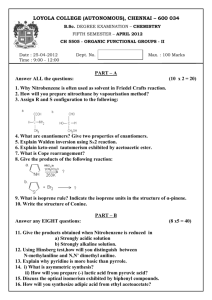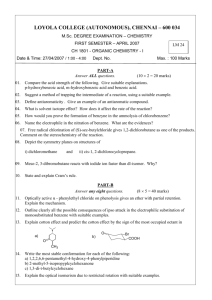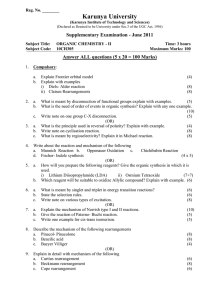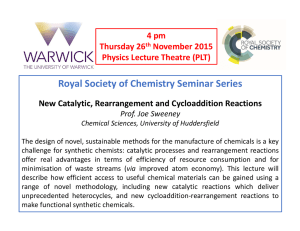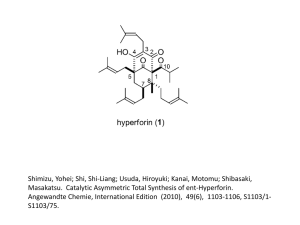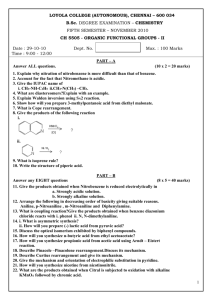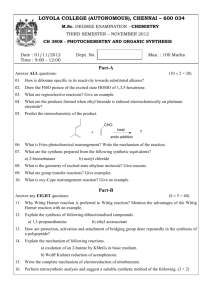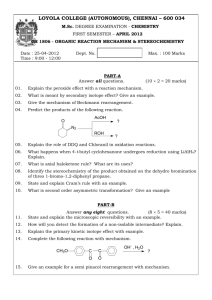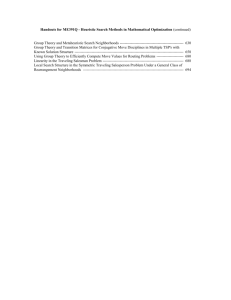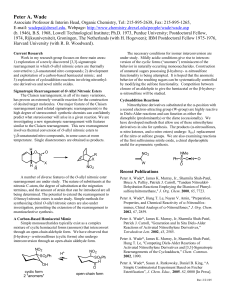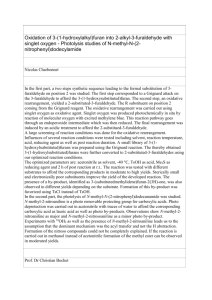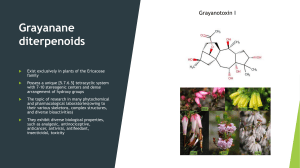CH 1812 1816
advertisement
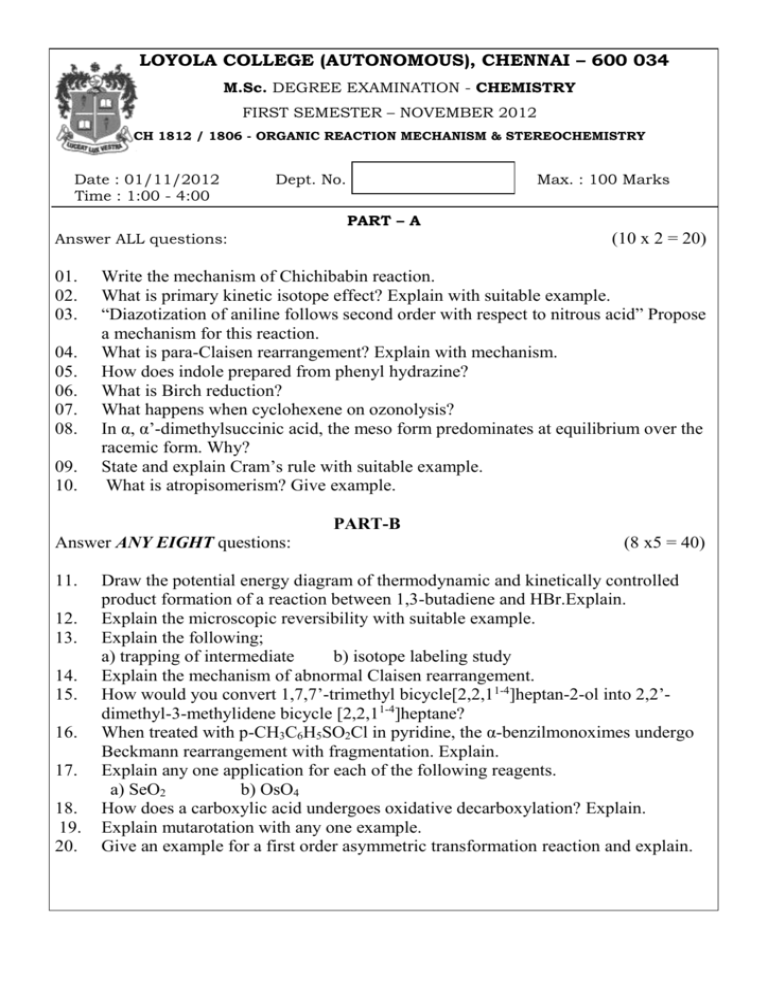
LOYOLA COLLEGE (AUTONOMOUS), CHENNAI – 600 034 M.Sc. DEGREE EXAMINATION - CHEMISTRY FIRST SEMESTER – NOVEMBER 2012 CH 1812 / 1806 - ORGANIC REACTION MECHANISM & STEREOCHEMISTRY Date : 01/11/2012 Time : 1:00 - 4:00 Dept. No. Max. : 100 Marks PART – A Answer ALL questions: 01. 02. 03. 04. 05. 06. 07. 08. 09. 10. (10 x 2 = 20) Write the mechanism of Chichibabin reaction. What is primary kinetic isotope effect? Explain with suitable example. “Diazotization of aniline follows second order with respect to nitrous acid” Propose a mechanism for this reaction. What is para-Claisen rearrangement? Explain with mechanism. How does indole prepared from phenyl hydrazine? What is Birch reduction? What happens when cyclohexene on ozonolysis? In α, α’-dimethylsuccinic acid, the meso form predominates at equilibrium over the racemic form. Why? State and explain Cram’s rule with suitable example. What is atropisomerism? Give example. PART-B Answer ANY EIGHT questions: 11. 12. 13. 14. 15. 16. 17. 18. 19. 20. (8 x5 = 40) Draw the potential energy diagram of thermodynamic and kinetically controlled product formation of a reaction between 1,3-butadiene and HBr.Explain. Explain the microscopic reversibility with suitable example. Explain the following; a) trapping of intermediate b) isotope labeling study Explain the mechanism of abnormal Claisen rearrangement. How would you convert 1,7,7’-trimethyl bicycle[2,2,11-4]heptan-2-ol into 2,2’dimethyl-3-methylidene bicycle [2,2,11-4]heptane? When treated with p-CH3C6H5SO2Cl in pyridine, the α-benzilmonoximes undergo Beckmann rearrangement with fragmentation. Explain. Explain any one application for each of the following reagents. a) SeO2 b) OsO4 How does a carboxylic acid undergoes oxidative decarboxylation? Explain. Explain mutarotation with any one example. Give an example for a first order asymmetric transformation reaction and explain. 21. 22. Predict the stereochemical change of acetolysis of 3-methoxy-2-bromobutane in the presence of silver acetate in acetic acid. State Brett’s rule and explain the reactivity of bicyclic rings. PART-C Answer ANY FOUR questions: 23. 24. 25. 26. (4 x10 = 40) a) “Radical bromination of isopentane is more selective than chlorination.” Explain with potential energy diagram. b) How does a Raman spectroscopy is used to determine the mechanism of nitration of benzene? Explain. a) Determine the reaction mechanism of base-catalysed iodination of aniline in presence of excess of iodide ion from its experimental rate data. b) Predict the products to be expected from acid-catalyzed rearrangement of cis- and trans-1,2-dimethylcyclohexane-1,2-diol and sketch mechanism for the formation. a) “The lactones obtained by the Baeyer-Villiger oxidation of camphor and apocamphor contain 25% and 94% of the abnormal product” Why? b) Explain memory effect with suitable example. a) Give mechanism for the following conversions. (i) Methane into methanol using aq.CrO3 (ii)Acetaldehyde into acetic acid using O2 and Ag. b) Complete the following with mechanism. OH O (i) NBH ? LTA (ii) ? OH 27. a) What are the various products obtained on the acetolysis of 3-phenyl-2-pentyl tosylate? b) Explain the process of separation of racemic alcohols with an example. c) Asssign R,S configurations to the following: OH CHO (i) H HO H OH H OH CH2OH 28. Br N (ii) (iii) Me OMe O2N O2N Br COOH a) State and explain curtin-Hammett principle with suitable example. b) Explain the following with applications; (i) cotton effect (ii) axial haloketone rule. ******
